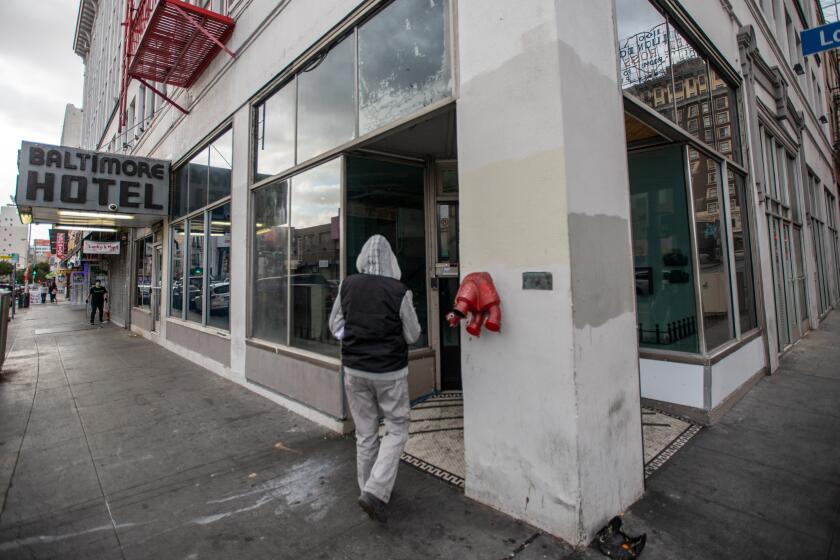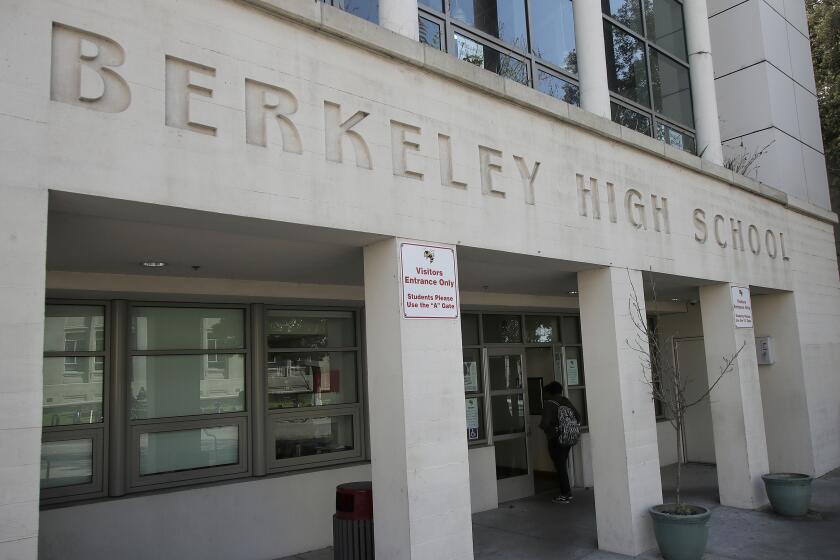Easy Promises, Hard Truths
Promises are easy. Delivery isn’t. That’s the hard lesson that even the most able would-be politicians have to learn. Ronald Reagan became governor in 1967 with promises to get California out of a fiscal hole by cutting waste, fraud and abuse and using business leaders to make government more efficient. It didn’t work. Reagan had to resort to a $1-billion tax increase, which at that time was more than 15% of the total state budget.
No wonder actor Arnold Schwarzenegger sounds familiar, saying his agenda for the Oct. 7 recall election “is exactly what Ronald Reagan stood for.” Don’t bother him with figures.
Logic isn’t lost solely on Republican candidates. Democratic Lt. Gov. Cruz Bustamante, who says he opposes recall but is running hard, came up with a doozy Thursday: He proposed, with a straight face, to place gasoline prices under the regulation of the Public Utilities Commission, which dawdled on the energy crisis and gave metropolitan Los Angeles six telephone area codes.
Oil companies deserve scorn for whipsawing gasoline prices, but Bustamante’s fix is a cheap shot that’s easy to make when nearing the nation’s busiest car-travel weekend and impossible to carry through on later. Gasoline price regulation was last used federally in the oil crisis of the 1970s and only served to exacerbate shortages and encourage a black market. Bustamante even picked the wrong location for his announcement: an independent gas station whose owner has no say in how oil companies set prices. The disbelief that greeted the idea may be an indication that he, too, is not quite ready for prime time.
Here are a few other oft-heard assertions from the recall campaign that crumple under closer examination:
Claim: Davis helped cause the electric power crisis of 2000-2001 and then failed to do anything about it.
Whole story: Davis wasn’t governor when the Legislature and Gov. Pete Wilson approved the fatal deregulation law in 1996. Davis’ claims that energy companies manipulated the market and gouged the state were true. However, he refused to dampen the crisis early on by allowing consumer electric power rates to increase. One of his most controversial decisions was to take over the purchase of electric power when private utilities ran out of cash. There were no more blackouts after that, but the state had to spend billions to keep the lights on.
Claim: The state’s budget can be balanced without tax increases or education cuts. Schwarzenegger said, “Does this mean that we are going to make cuts? Yes. Does this mean education is on the table? No. Does it mean I’m willing to raise taxes? No.”
Whole story: The shortfall for the coming year is $8 billion, on top of billions in debt already papered over with bond issues and loans. It cannot be brought into balance without severe additional budget cuts, including in education, or some increase in taxes. Education and health and human services account for 85% of general fund spending. John Ellwood, a public policy professor at UC Berkeley, notes that “there’s nothing left basically but muscle” to cut.
Certainly Davis is guilty of delay and timidity during the energy and budget crises, and of blatantly grubbing money from special interests. He should be trying to persuade voters he can lead the state to better times, not defending a lackluster record. But other claims amount to blaming Davis for thunderstorms in Lancaster.
Those who would claim to be ready to lead the state have to demonstrate more than an ability to criticize easy target Davis or push half-baked plans for phony savings at the gas pump.
More to Read
Get the L.A. Times Politics newsletter
Deeply reported insights into legislation, politics and policy from Sacramento, Washington and beyond. In your inbox three times per week.
You may occasionally receive promotional content from the Los Angeles Times.






